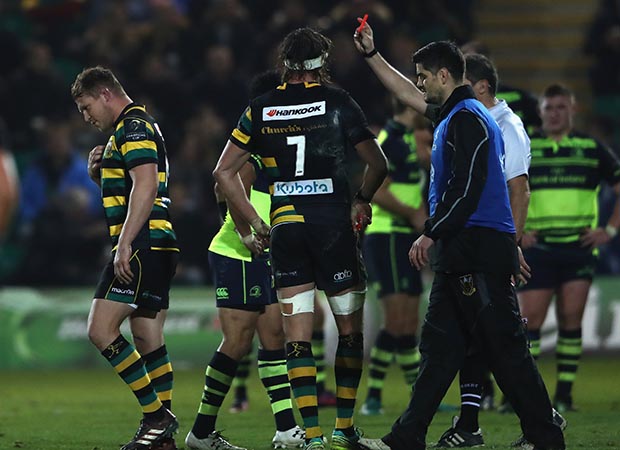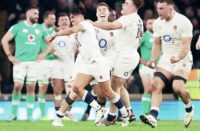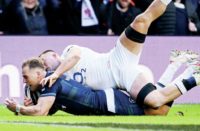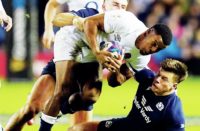 Somehow the words leopards and spots have sprung to mind this week, having once again had to listen to all those trying to defend the undefendable. With so much being written and said regarding Dylan Hartley's ‘reckless' act of hitting Sean O'Brien round the head, I feel almost embarrassed to bring up the subject. Those who have read these pages before will know that I am not a Hartley fan, although I still think he is one of the few ‘real' hookers playing in the Premiership.
Somehow the words leopards and spots have sprung to mind this week, having once again had to listen to all those trying to defend the undefendable. With so much being written and said regarding Dylan Hartley's ‘reckless' act of hitting Sean O'Brien round the head, I feel almost embarrassed to bring up the subject. Those who have read these pages before will know that I am not a Hartley fan, although I still think he is one of the few ‘real' hookers playing in the Premiership.
As a player, I was no shrinking violet and was sent off four times during my early career, all for retaliation. It's not a fact I am proud of, but I did learn to think before I acted, which is something that Hartley seems incapable of doing.
Having watched the recent incident a number of times, I am stunned by the leniency shown by the disciplinary panel. In my opinion, Hartley was not in any way attempting to tackle O'Brien. Hartley was behind O'Brien and swung one arm, which would have hit him close to the upper back/neck area even if he had not already been tackled and falling. The swinging arm was, in my opinion, at best an attempt to hurt O'Brien if not injure him. Hartley may yet face a harsher sentence should World Rugby review the case as they have in the past when sentences have appeared too lenient – but that is for others to decide.
One thing I found hard to believe was RFU CEO Ian Ritche publicly defending Hartley before the hearing and saying that Hartley had ‘credit in the bank' simply because he had captained England to a 13-match-winning run.
I am amazed that Ritche would appear to try and directly, or indirectly, pressure the panel by more or less suggesting that Hartley would return to the England team no matter what their decision and sanction.
How captaining any team can allow a player to escape or get a reduced sanction for a blatant red card act on the field is bad news and the idea that the RFU would condone such acts seems ridiculous. Particularly at a time when the game is coming under greater scrutiny than ever before because of the potential life-changing injuries and their impact long after a player retires caused by dangerous tackles.
In addition, when the RFU are seeking to encourage more schools and children to take up the sport, one has to wonder what sort of message the CEO of the RFU, by trivialising such acts, is sending out to parents, teachers and players?
As if all this were not bad enough, there is the accusation voiced by Lawrence Dallaglio, and to a certain extent backed by Northampton coach Jim Mallinder, that Hartley has ‘checked out' of playing for his club, Northampton.
Having played just five games for his club this season, admittedly largely because of injury, there seems to be a feeling that since being made England captain, Hartley feels he is slightly above playing the club game.
As Lawrence said, if anything, as an England player when you come back to your club you have to make the effort and be a driving force within the club team and, as an England captain, you have to double those efforts.
There has and always will be a slight mystic about team captains with everybody telling you how important they are and how they make the team a success. I have to say that I am not a great believer in the myth that surrounds team captains and how they are so ‘important' to a team, especially in the modern professional game.
With players now routinely substituted, you would assume that the stability of having a captain on the field translating the coach's ideas into reality would be essential, but in almost every game, the captain is among those substituted before the end of the match, no matter what the score.
It's not as if the captain is really someone special as they are often changed as a matter of course should a new coach take over, which would appear to me to say that it is more about personality than leadership.
What has to be remembered is that an international team is full of leaders at the top of their game and almost anyone could take over the role of captain if offered but it is the decision of one man, the head coach.
I think the choice of captain is more to do with how a coach wants his team to be perceived by the media and the public and who he chooses can colour that view.
Stuart Lancaster wanted his England to be seen as honest, hard-working and honourable and he chose a captain in Robshaw who reflected those values.
On the other hand, when Jones took over he wanted his England to appear slightly edgy, brash and in your face but still at heart a club team, so he chose Hartley.
Jones made a point of saying he wants his players to be club men who take the good things they learn with England back to their clubs and play for them like they are playing for England.
Given Hartley's performance, it will be interesting to see if Jones is a man of his word.


























